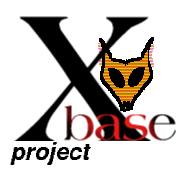.
System Limitations
Maximum size of a database file is the size of LONG - 2,147,483,647 bytes
Total number of fields in a database - 1024
Total number of characters in all fields - 32767
Maximum number of characters in a field - 254
Total number of records in a file - 1 billion
Maximum index key length - 100 bytes
Maximum .DBT file memo block size - 32256
Maximum expression result length - 100 bytes
Maximum NDX index key length - 100 bytes
| OPTION | DESCRIPTION |
|---|---|
| --without-xbase-debug | Turns off xbase debugging code |
| --without-index-ndx | Turns off NDX index options |
| --without-index-ntx | Turns off NTX index options |
| --without-memo-fields | Turns off memo fields |
| --without-expressions | Turns off expression processing |
| --without-ui-html | Turns off HTML user interface class |
| --without-xbase-locking | Turns off xbase locking |
| --without-xbase-debug | Turns off debug logic |
| --without-exceptions | Turns on exception processing |
| --with-castellano | Turn on castellano/spanish date options |
| --without-realdelete | Turn off Xbase record deletion |
| --without-xbase-filter | Turn off Xbase filter logic |
Use these options on the command line when executing the ./configure command. Also, you can execute ./configure --help for a complete list of all unix configure options.
Q Why turn any of thes options off?
A Smaller library
